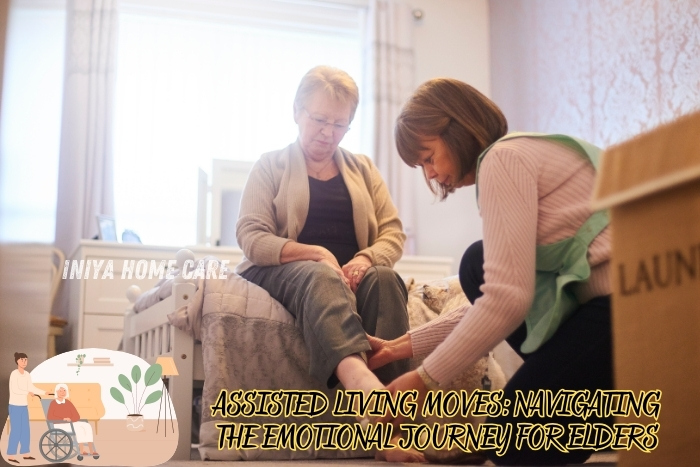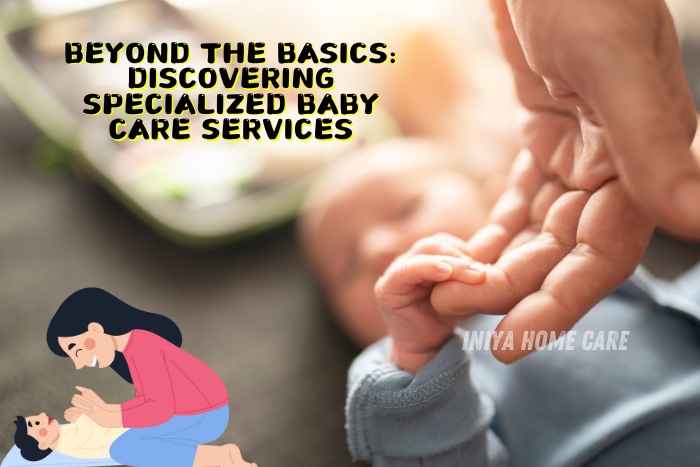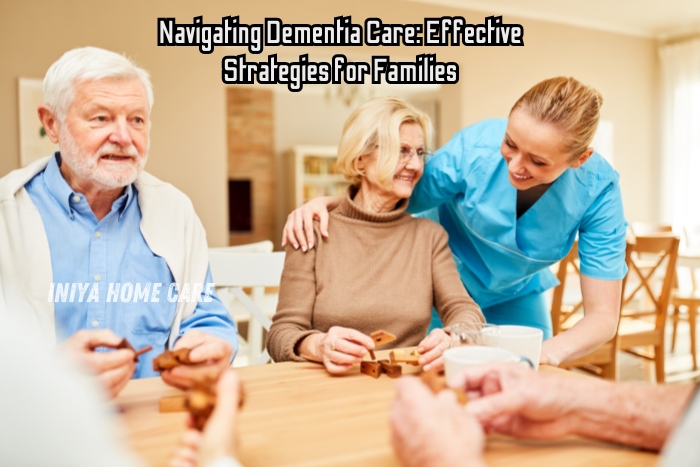Moving into assisted living is one of the most significant decisions in an elder’s life. While it often provides safety, social interaction, and professional care, the emotional toll it can take on both the elder and their family is undeniable. For seniors, the move signals a shift from the home they’ve likely lived in for many years—a place filled with memories and comfort. It can be daunting, but with the right support and approach, this transition can be made smoother, allowing elders to settle in and thrive in their new environment.
At Iniya Home Care, based in Pollachi, we understand the emotional complexities of assisted living moves. We provide personalized, compassionate care that helps seniors adjust to these significant life changes, ensuring they feel supported throughout the process. In this blog, we’ll discuss how families and caregivers can navigate the emotional journey of moving elders to assisted living, providing effective strategies to ease the transition.
Understanding the Emotional Impact of Assisted Living Moves
For elders, moving into an assisted living facility is not just about relocating physically; it’s an emotional and psychological journey. The fear of losing independence, leaving behind familiar surroundings, and adjusting to a new way of living can bring up a range of emotions.
Common Emotional Responses
- Fear of the Unknown: One of the most common feelings elders experience is fear. They may wonder if they’ll fit in, whether they’ll be properly cared for, and how their day-to-day life will change.
- Grief and Loss: Leaving behind a family home filled with memories can evoke a sense of grief. Seniors may mourn the loss of independence or the life they once knew.
- Anxiety: The worry about making new friends, adjusting to new routines, and potentially facing health issues can lead to heightened anxiety.
- Resistance to Change: It’s natural for people to resist change, especially when it comes to something as big as leaving their home for an assisted living facility.
Recognizing and Validating These Emotions
It’s crucial to recognize that these emotional responses are valid. Trying to downplay them or ignoring them can make the transition even harder. At Iniya Home Care, we focus on acknowledging these feelings and working through them with empathy and care. This helps make the process less stressful for everyone involved.
Preparing for the Transition: Communication is Key

The first step to easing the emotional burden of moving is open and honest communication. Families should engage in thoughtful conversations about why the move is necessary and how it will benefit their loved one. Instead of making it seem like an inevitable outcome, it’s essential to involve elders in the decision-making process as much as possible.
Tips for Effective Communication
- Start the Conversation Early: Don’t wait until it’s an emergency situation. Bring up the idea of assisted living well in advance so that elders have time to process the idea.
- Be Honest but Gentle: Explain the reasons behind the decision in a way that emphasizes the benefits of assisted living, such as better health care and social opportunities, while also acknowledging their concerns.
- Listen to Their Feelings: Allow the elder to voice their fears, worries, and resistance. Listening without judgment shows respect for their feelings.
- Involve Them in Decisions: Whether it’s choosing the facility or deciding what items to bring to their new home, involving elders in the process helps them feel more in control.
At Iniya Home Care in Pollachi, we provide guidance for families navigating these conversations, ensuring they are handled with sensitivity and respect for the elder’s autonomy.
Preparing the Elder’s New Living Space
The physical move to assisted living is only part of the transition. Making the new environment feel like home is essential for emotional comfort. One of the best ways to help an elder settle into their new surroundings is by personalizing their living space with familiar items that remind them of home.
Personalizing the New Space
- Bring Favorite Furniture or Items: While the space in assisted living facilities may be smaller, bringing a few cherished items—like a favorite armchair, family photos, or a treasured blanket—can help make the new place feel more familiar.
- Create a Memory Wall: Dedicate a space on the wall for photos of family, friends, and important life events. This visual connection to loved ones helps ease feelings of isolation and homesickness.
- Incorporate Their Hobbies: If the elder has hobbies like knitting, reading, or painting, make sure these items are readily accessible in the new space. Encouraging these activities can make the transition smoother and keep them engaged.
At Iniya Home Care, we often work with families to make this transition as smooth as possible by suggesting ways to make assisted living feel like a comfortable, welcoming home for their loved one.
Supporting Emotional Well-Being Post-Move
The emotional journey doesn’t end once the elder moves into the assisted living facility. In fact, this is just the beginning. The first few weeks or months can be the most challenging as they adjust to their new lifestyle. Emotional support from family, caregivers, and facility staff is critical during this phase.
Encouraging Social Connections
One of the benefits of assisted living is the opportunity for seniors to engage in social activities with peers. However, it can take time for an elder to feel comfortable enough to make new friends and participate in group activities.
Strategies to Encourage Socialization:
- Start Slowly: Encourage the elder to join in on smaller, low-pressure activities like attending a movie night or taking part in a book club.
- Introduce Them to Others: Help break the ice by introducing your loved one to other residents who share similar interests. Even just sitting together during mealtime can help build relationships.
- Involve Them in Decisions: If the elder feels like they have some control over their social calendar, they’re more likely to engage. Allow them to pick and choose which activities they want to participate in.
At Iniya Home Care, we encourage families to remain actively involved in the social adjustment period, visiting often and checking in to make sure their loved one feels connected.
Maintaining Family Bonds
One of the greatest fears elders have when moving into assisted living is losing contact with family. Reassure them that your relationship will remain strong by scheduling regular visits and calls. Technology like video calls can also help bridge the gap if family members live far away.
Ongoing Communication
Keep in touch with the assisted living facility’s staff to get updates on how your loved one is adjusting. If there are any concerns, whether it’s about their emotional well-being or physical health, address them early on.
Overcoming Resistance: When Elders Struggle to Accept the Move
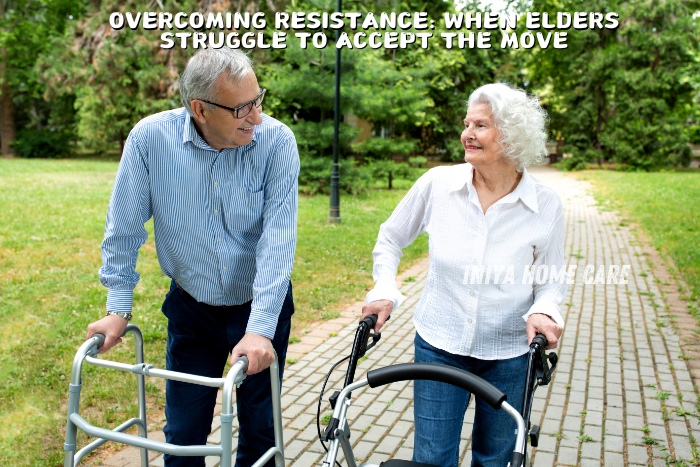
It’s not uncommon for elders to resist the idea of moving to assisted living. Understanding the reasons behind this resistance can help families address the concerns and find ways to ease the transition.
Common Reasons for Resistance
- Fear of Losing Independence: Many elders equate moving into assisted living with losing their independence.
- Fear of Being Forgotten: Seniors often worry that their families will visit less once they are in assisted living.
- Stigma: Some elders feel embarrassed about needing help and view assisted living as a sign of weakness.
Addressing These Concerns
- Highlight Independence: Emphasize that assisted living can actually provide more independence. With day-to-day needs taken care of, elders can focus on hobbies, socializing, and enjoying their time.
- Reassure About Family Contact: Reassure them that family will remain involved and committed to regular visits and phone calls.
- Acknowledge the Change: Instead of glossing over their concerns, acknowledge that the move is a big change and that it’s okay to feel upset or anxious about it.
At Iniya Home Care, we support families during this difficult time, offering advice and emotional support for elders who are struggling to accept the transition.
The Role of Professional Caregivers in Assisted Living Transitions
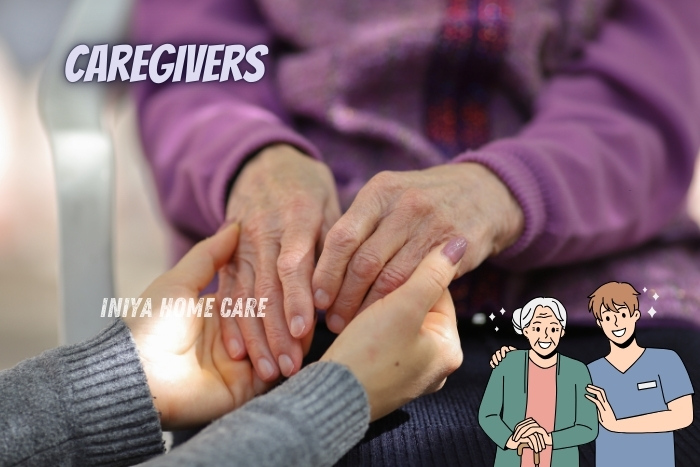
Professional caregivers, like those at Iniya Home Care in Pollachi, play an important role in helping elders transition into assisted living. Whether it’s by providing personalized care, companionship, or simply lending an empathetic ear, caregivers can make a significant impact on an elder’s emotional well-being.
How Caregivers Help
- Offering Companionship: For elders who feel lonely or isolated after the move, professional caregivers can provide much-needed companionship and emotional support.
- Monitoring Health and Well-Being: Caregivers are trained to spot signs of emotional distress or health concerns, ensuring that any issues are addressed early.
- Helping with Daily Activities: For elders who need assistance with daily tasks such as bathing, dressing, or taking medication, caregivers ensure these needs are met with dignity and respect.
At Iniya Home Care, we pride ourselves on providing compassionate, high-quality care that helps elders maintain their independence and emotional well-being during the transition to assisted living.
Conclusion: Navigating the Emotional Journey Together
Moving into assisted living is a major life change for elders, one that requires patience, understanding, and emotional support from family, friends, and caregivers. By recognizing the emotional impact of this transition, communicating openly, and providing a supportive environment, families can help their loved ones adjust to this new chapter in their lives.
At Iniya Home Care, located in Pollachi, we are here to support families and elders through every step of the assisted living transition. Our team is dedicated to providing personalized care that prioritizes the emotional and physical well-being of our clients, helping them embrace their new living environment with confidence and peace of mind.

